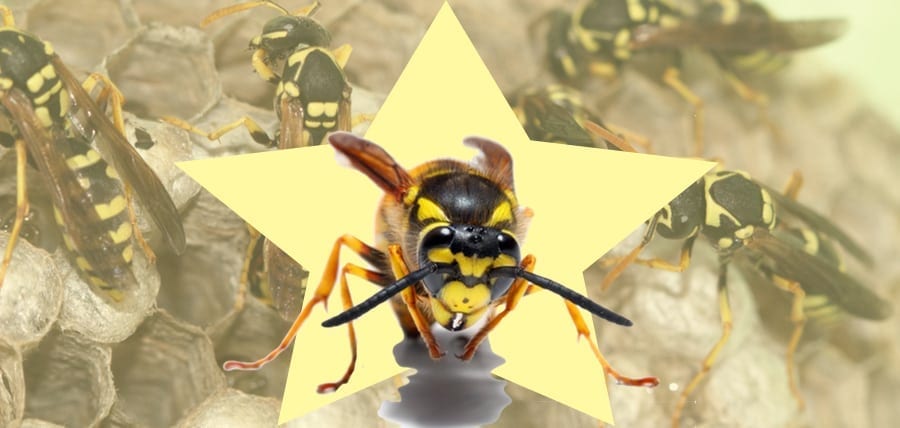Oh My Gosh, I Have Wasps and Hornets In My Yard!
Wasps and hornets are an inevitable part of life once the weather begins to warm up, but they’re most people’s least favorite part of summer. Spotting a nest under the eaves on the porch can make even the bravest soul among us cringe with fear, run back in the house, and avoid the area at all costs. And, no wonder. Stings are extremely painful.
The Difference Between a Hornet And Wasp
Distinguishing between wasps and hornets can be somewhat confusing because, basically, only some wasps are hornets, but every hornet is a wasp. The terms are sometimes used interchangeably, but there are differences between the two.
What most folks think of as a hornet is really a hornet with a bald face, a species of wasp and not a hornet at all! The major difference is size. Wasps are smaller than hornets. Wasp and hornet identification is also aided by the difference in color. Wasps are black and yellow, while Hornets have an orange-red hue.
There is also a difference in temperament. Hornets are larger, so people tend to be more afraid of them, but that should not be the case. Wasps are actually fiercer. There are two kinds of wasp, social and solitary. The scariest kind is the social wasp. The social wasp literally has a mob mentality. If you aggravate just one member of the hive, the hive will come at you in an angry swarm. The lone wasp you made angry gives off a pheromone that alerts the rest of the hive it is in distress. At that point, you’d better start running in the other direction.
Hornets Eat Other Insects, Including Bees
As you have read, wasps are like weaponized little flying machines that form armies and terrorize their victims. Their sting can be fatal to those with allergies. They almost seem predatory and hungry, and you’re right, sort of. You may assume hornets and wasps eat only plant nectar like bees. And, while some wasps of the social variety are omnivorous, all hornets and many wasps eat only other insects. Does this make you like them less? Yes, probably. Hornets eat up a lot of the cute little yellowjacket bees that pollinate the flowers in your yard.
if you were feeling guilty about getting rid of hornets and wasps, thinking they are pollinating plants and such, think again. They help control insect populations, though, so they do certainly hold an important spot in ecology. But, there is no reason to put up with hornets and wasps near your home because they can be so aggressive.
On The Attack
Hornets, when compared with wasps, are not as aggressive and, typically, only go on the attack if their colony is disturbed. We have all heard the warning about not disturbing the hornets’ nest. Usually, those nests are in elevated areas, such as the tops of trees or in your attic. Hornets also nest in the ground, and this is the one time that hornets become a real threat to people. A hornet’s nest can be a menace to the naive human who steps on it and gets chased by the swarm.
Wasp nests are created with chewed-up wood. They are unique in appearance because they have a paper-like appearance. The only exception is a type of wasp that uses mud or clay to build its nest, called “mud daubers.” Regardless of where the wasp or hornet nest is and whether the buzzing insects are considered angry or docile, once their existence is confirmed, most people want to get rid of them.
Let’s help you get rid of these fierce and weaponized little flying machines before you have to start running.
Contract NJ Pest Control NOW! We are ready and happy to help you.

